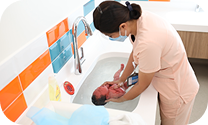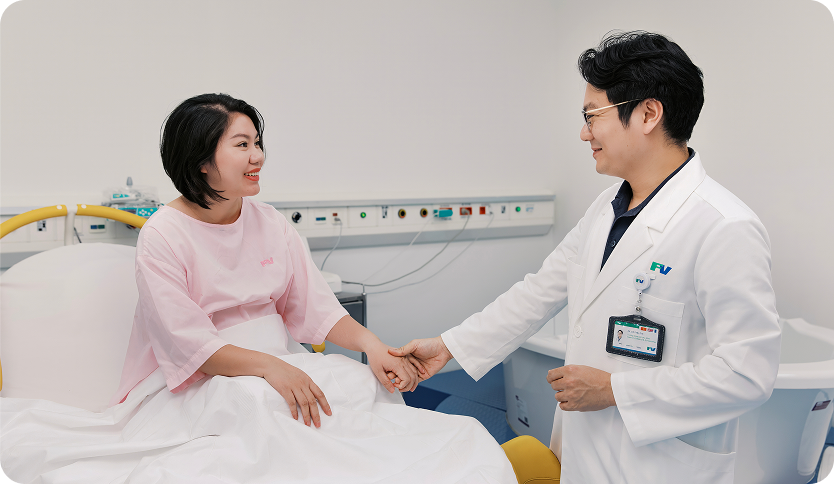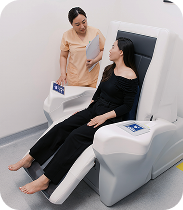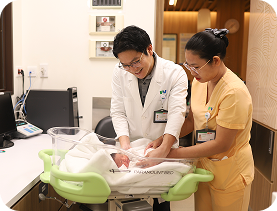Background information
Chromosomes are small “packages” of genes in the cells of the human body. These cells normally contain 46 chromosomes which exist in pairs (23 chromosomes inherited from the mother and 23 chromosomes inherited from the father). Genetic disorders and some birth defects are commonly caused by presence of an abnormal number of chromosomes (medically referred to as aneuploidy).
Commonly screened aneuploidies
The aneuploidies commonly screened during pregnancy are:
- Down syndrome: this is also known as Trisomy 21, because the affected person has three copies of chromosome 21 instead of two
- Patau syndrome: this is also known as Trisomy 13, because the affected person has three copies of chromosome 13 instead of two
- Edwards syndrome: this is also known as Trisomy 18, because the affected person has three copies of chromosome 18 instead of two
Historically, non-invasive prenatal screening for these syndromes has relied on measuring markers from the mother and also on ultrasound scans. However these methods have a false-positive rate of approximately 5% and the detection rate varies between 50 – 95% depending on the screening method used.
Recent advances in technology have led to development of more sensitive screening options using NIPS.
What is NIPS?
This new screening test offered by FV Hospital is harmless to the developing baby.
During pregnancy, a very small amount of baby’s genetic material is transferred through the placenta into mother’s blood circulation. NIPS is a noninvasive method to screen for certain specific chromosomal abnormalities in the developing baby through testing of blood collected from the mother.
A simple blood sample is collected from the mother and sent to the laboratory. The laboratory will then extract the baby’s DNA from that sample to screen for any abnormal chromosomes.
NIPS is currently the most sensitive and specific method in screening for the three common abnormalities affecting chromosomes 13, 18 and 21.
FV Hospital works in collaboration with reputable and accredited international laboratories to perform this test.
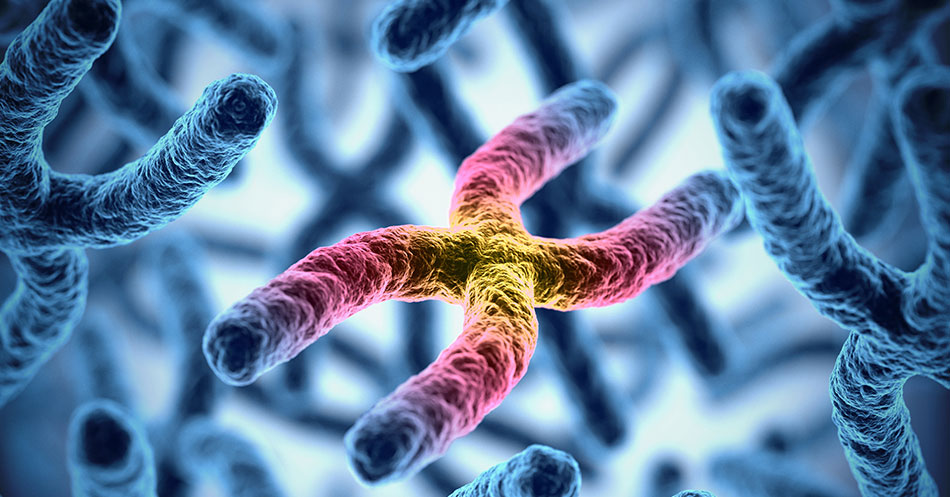
Who should get it?
There is no restriction on which pregnant patient should get this test.
FV Hospital recommends it for all pregnant women, of any risk group, because it has a lower false positive rate as compared to the conventional double and triple tests.
When can it be performed?
It can be performed from the 10th week of gestation and all along the pregnancy.
How long will I wait to get the result?
Result is provided within 15 working days.
How is the result given?
The result indicates if the foetus carries or not a trisomy 13, 18 or 21. The result is sent only to your doctor who prescribed the test and the doctor will explain the meaning of the result and any additional test which may be required.
What happens in case of negative result?
A negative result means that the risk of trisomy 13, 18 and 21 in the foetus is extremely low. Your doctor will follow you up, especially with ultrasound scan, and will tell you if additional tests are required.
What happens in case of positive result?
A positive result means that the foetus has a high-risk of being affected by the trisomy in question.
Your doctor must confirm this result by an amniocentesis or a chorionic villus sampling in order to have a karyotype of the foetus performed. A karyotype is the examination of the chromosomes under a microscope to determine their number and appearance.
The karyotype gives a definitive diagnosis.
In practice!
- Contact your doctor monitoring your pregnancy,
- Your doctor will prescribe your laboratory test. A Certificate of Medical Information from the referral international laboratory and an informed consent is required,
- Your blood will be collected,
- FV Hospital laboratory will liaise with the referral international laboratory to perform the test,
- Your result will be given to you by your doctor within 15 working days.
Important!
Performing this test, regardless of its result, does not replace in any case the regular monitoring of your pregnancy using ultrasound scan.
For any question, do not hesitate to seek advice from your doctor.
References:
- Gregg A.R. et al. Non-invasive prenatal screening for foetal aneuploidy, 2016 update: a position statement of the American College of Medical Genetics and Genomics. Genet Med July 2016; online publication (ahead of print).
- Stokowski R. et al. Clinical performance of non-invasive prenatal testing (NIPT) using targeted cell-free DNA analysis in maternal plasma with microarrays or next generation sequencing (NGS) is consistent across multiple controlled studies. Prenat Diagn 2015; 35: 1243-1246.







